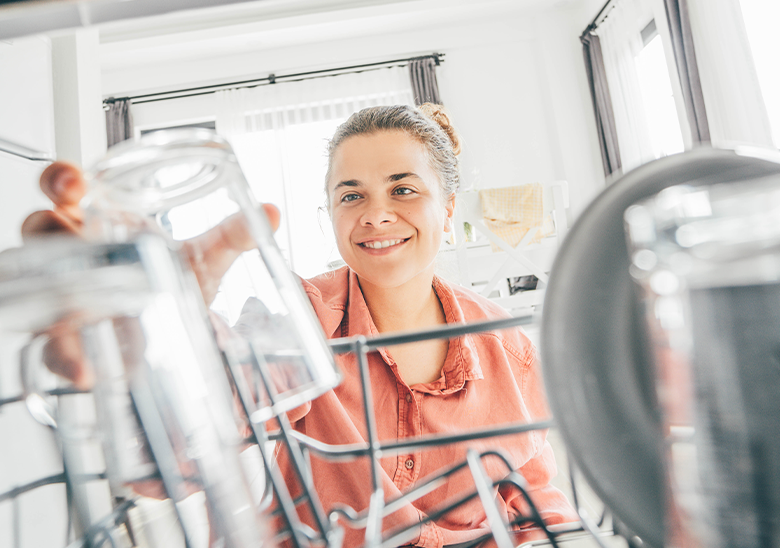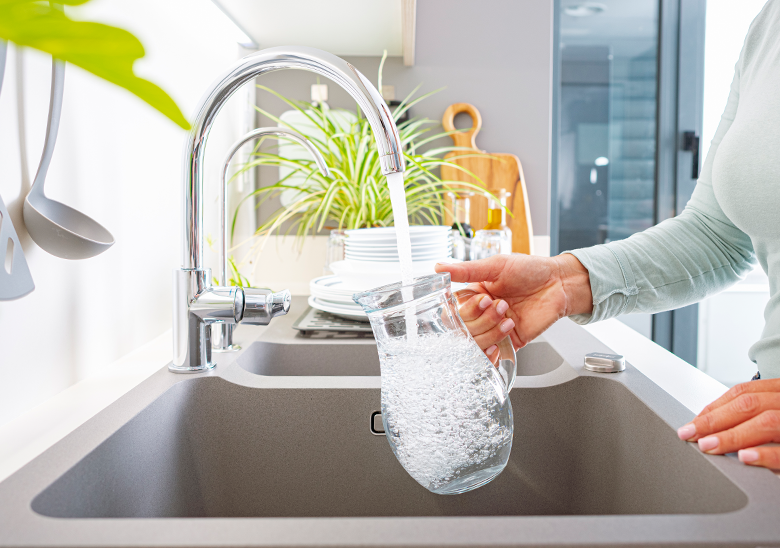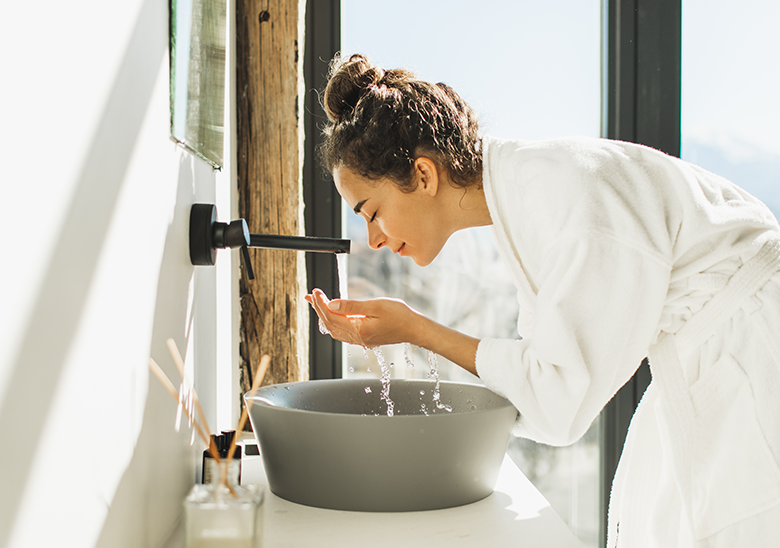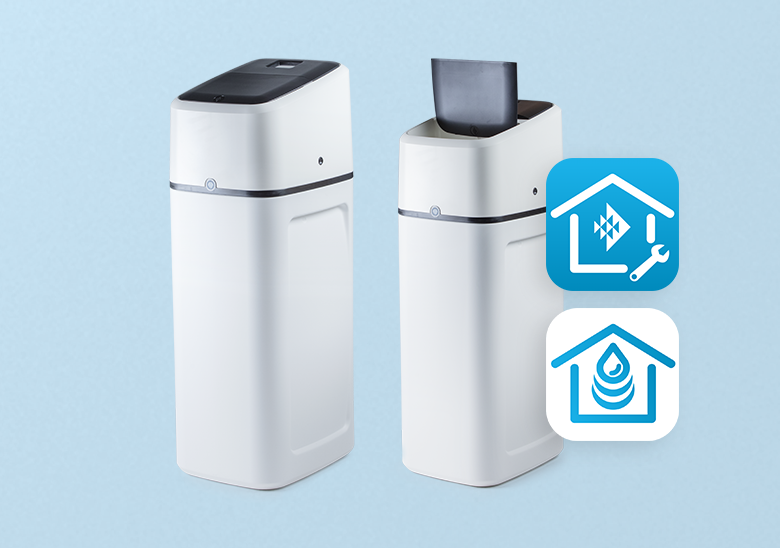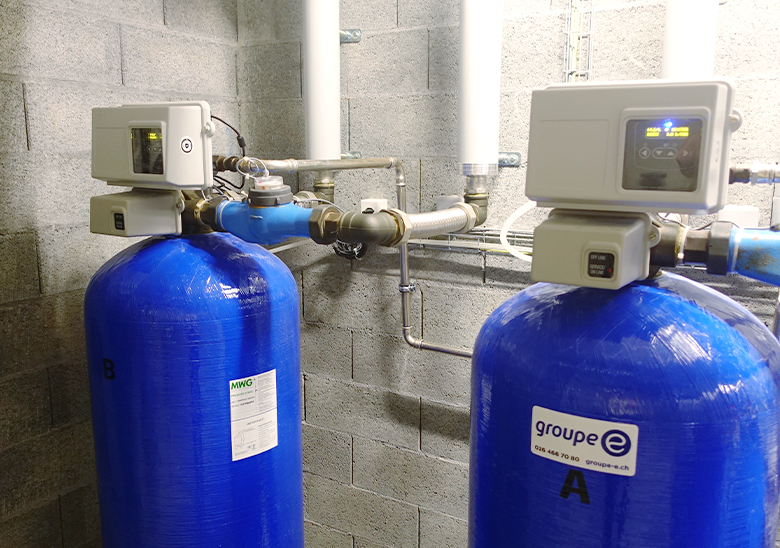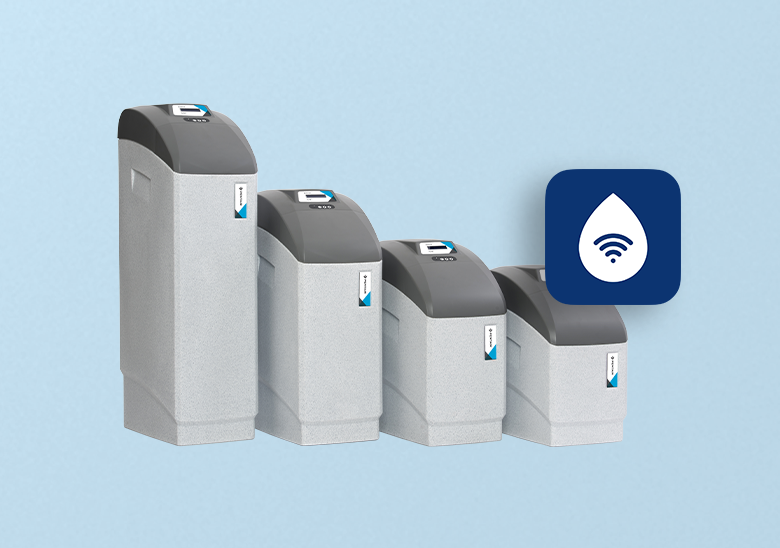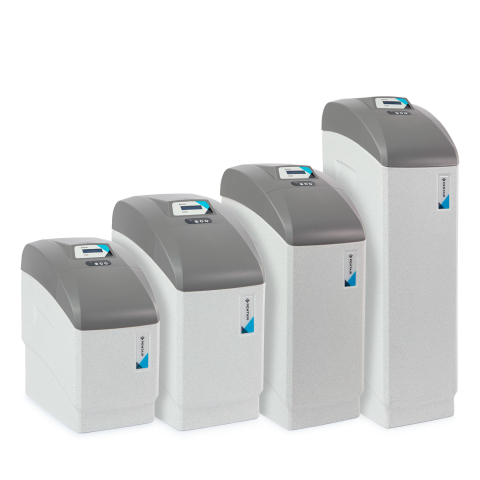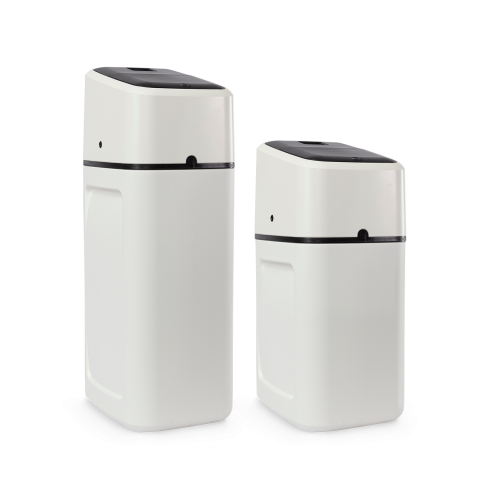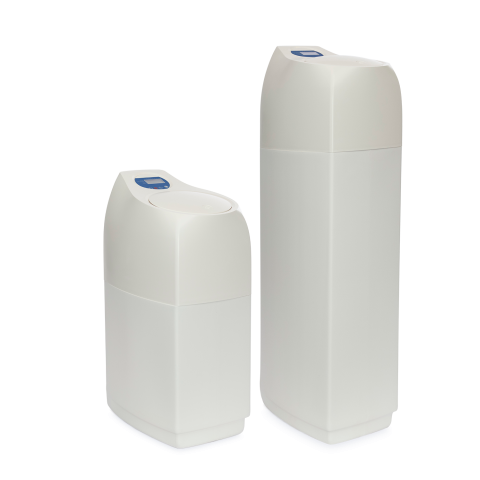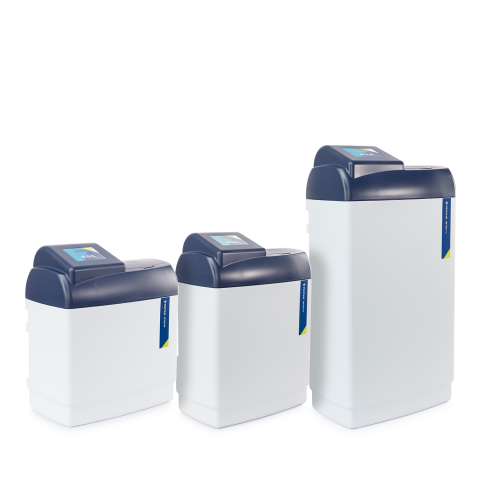Our planet’s water continuously changes state by advancing through a circuit known as the water cycle. One such step is rain, when water that had evaporated into the atmosphere flows back to earth. In doing so, it comes into contact with calcareous rocks and is loaded with sediment. This water is said to be calcareous or hard: saturated with minerals that it retains once it reaches our running water networks despite the treatment stages to make it drinkable.
Definition of water hardness
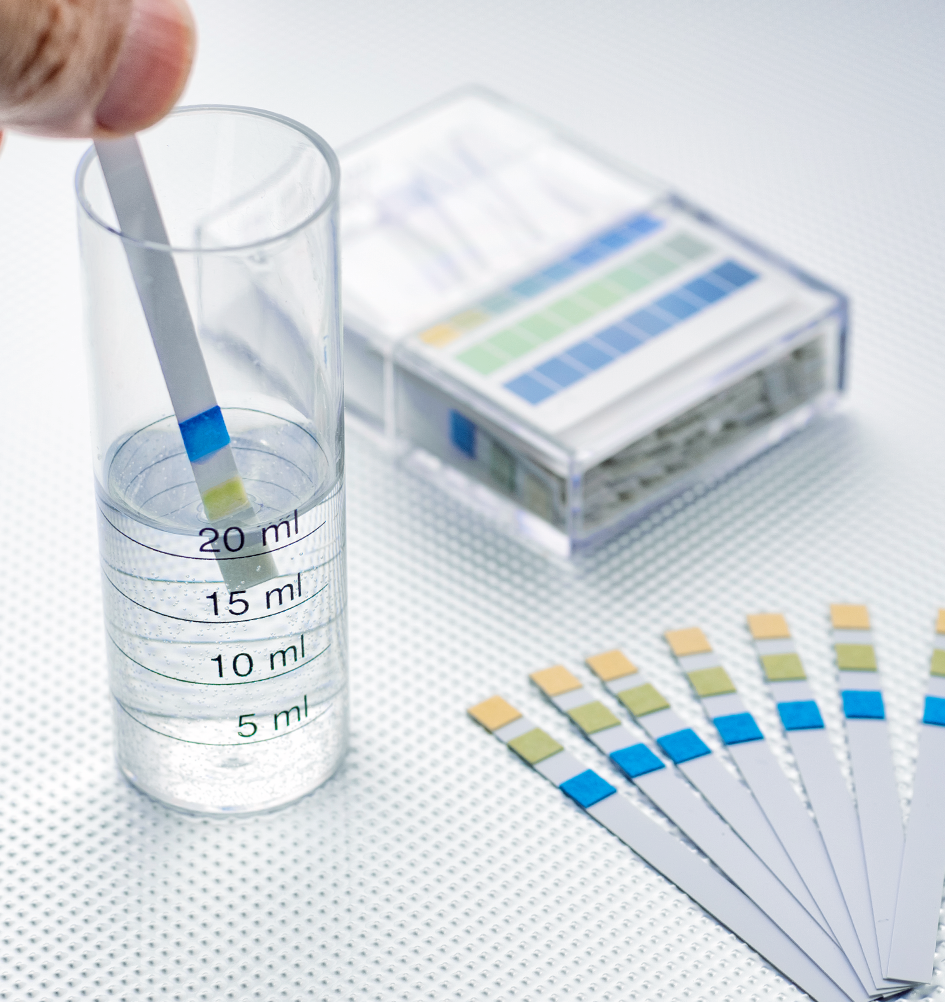
The hardness of the water indicates the amount of minerals it contains. Specifically, the amount of ions (an ion is a transformed atom) of calcium and magnesium dissolved and amassed by water through rock and soil. As mentioned, calcium and magnesium ions dissolve in water from rocks, such as limestone and chalk, due to runoff on these rocks and flow through the soil.
Water hardness can be expressed according to several measurement scales: French degrees (°f), German degrees (dH), parts per million (ppm) or milligrams of calcium carbonate per litre of water (mg/l).
How to calculate water hardness
Local authority websites often contain information on the hardness of the local water. If applicable, a manual measurement using commercially purchased hardness test strips or kits may indicate the hardness of the water coming from your faucet.
The correct water hardness
For water from the faucet in the home, it is estimated that a hardness of between 6 and 12°f is ideal. Small amounts of magnesium and calcium in your water can also be good for your health. However, if you notice that your water leaves traces of limescale on your surfaces or in your appliances, this means that the minerals it contains are reaching saturation point, and that softening would be beneficial for your well-being, the lifespan of your appliances and your energy costs.
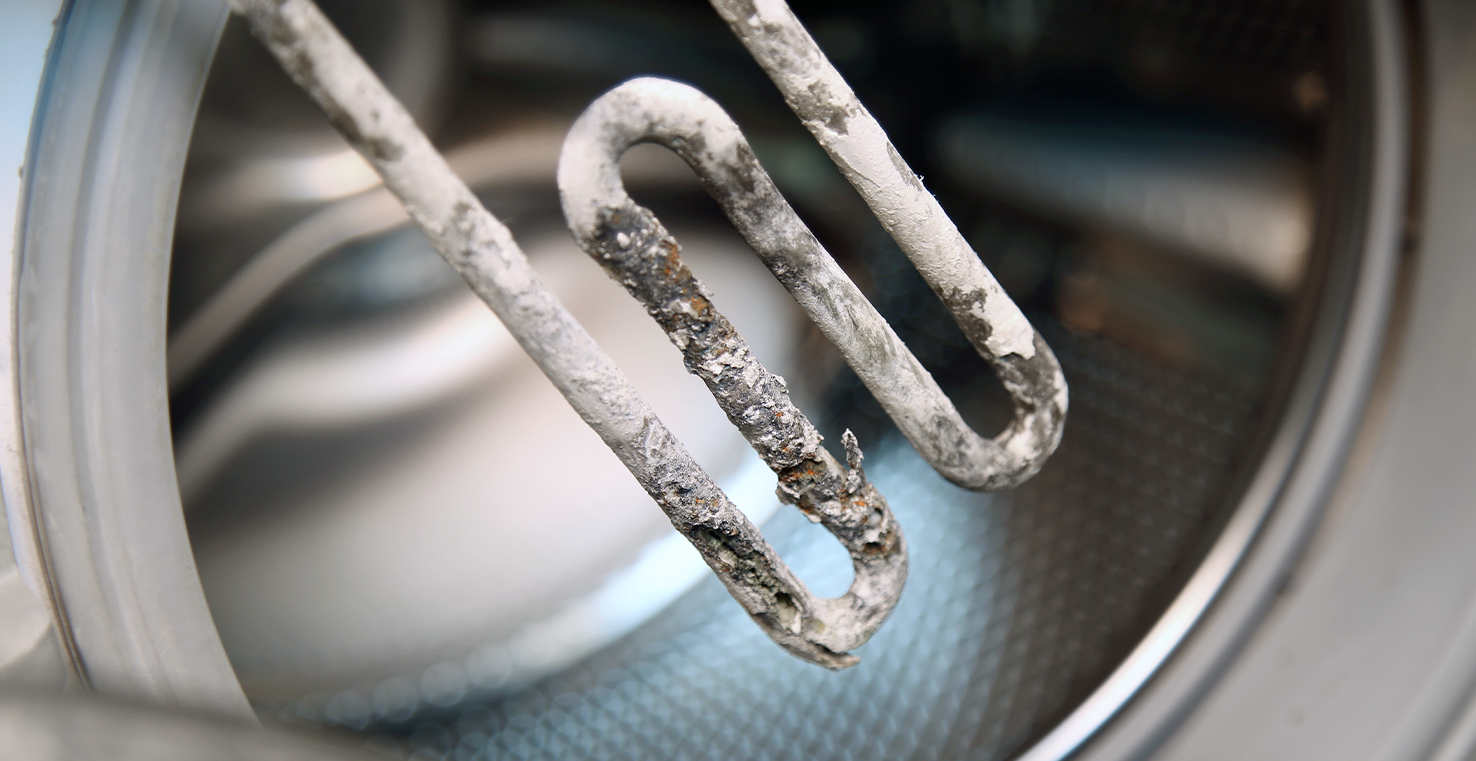
How to reduce water hardness
The most effective way to reduce the water hardness in your home or apartment is to install a softener that will first remove all this hardness. Then, by adjusting the residual hardness, ideally reach 6 to 12°f using a mixing screw installed on the bypass or the softener directly.
